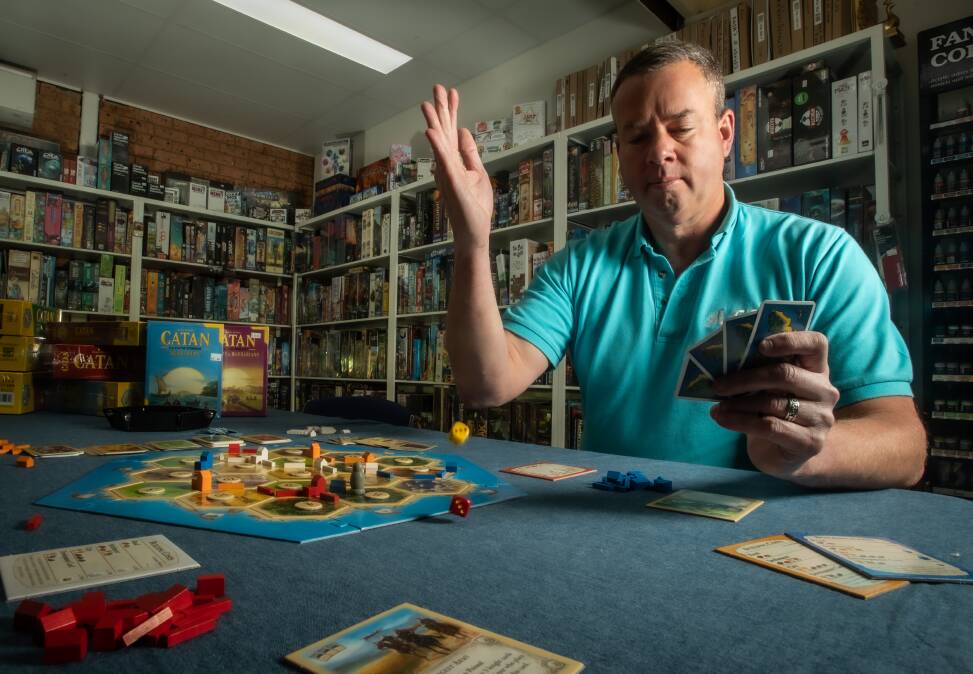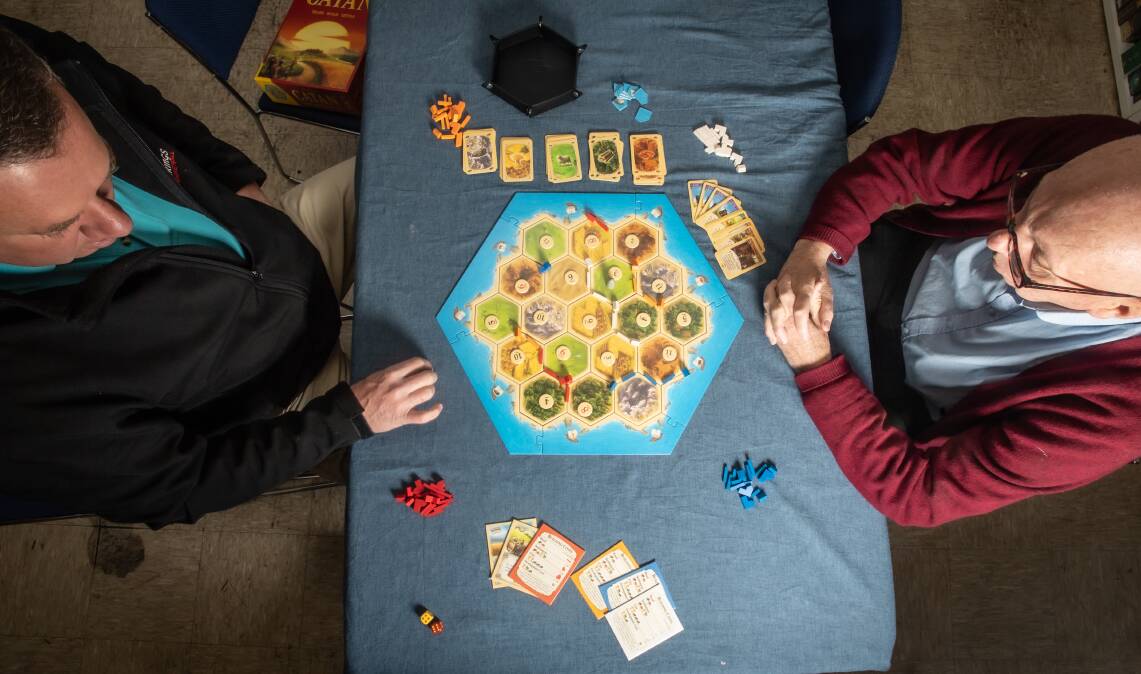Some nice old things just refuse to die whatever the dictates of the latest whizzo technology.
In the age of the video game, "old-fashioned" board games are now celebrating a boom.
As testimony to the joyous notion that face-to-face human interaction is alive and thriving, the national championship for the "Catan" game is to be held in Canberra on Saturday.
The winner goes to the world championship in Malta.
"Catan" (previously known as "Settlers of Catan") is a game where human beings sit around a board and try to outwit each other.
Depending on the throw of the dice, they can "settle" the island of Catan with roads and buildings by using resources like wool, grain, brick or ore.
There are cards representing those resources and counters on the board representing buildings and cities.
The game is a bit like Monopoly but with thought. It demands strategy and brains.
The Australian championships on Saturday have 64 entrants who will outmanoeuvre each other over 12 hours at the Eastlake Football Club in the ACT.
It is expected to be intense but fun. It will be social, certainly more social than sitting alone in a darkened room playing someone far away through a screen.

The organiser of the tournament refers to the "joy" of playing across a board.
"The world can be difficult so the chance to do something joyful is a good thing," Charles Bishop said.
"There's something about sitting across a table and laughing. Whether you win or lose is neither here nor there."
Up to a point, no doubt. Competition is expected to be fierce but friendly.
Charles Bishop has a lot to thank board games for: his son had an accident on a trampoline which left him a hair's breadth from paralysis from the neck down.
As the critically-injured patient lay for months in a cast, games helped him and his family come through.
"He was doing a flip on a trampoline and dislocated his C2 vertebrae (the second from the top in the neck)," the father said.
Opinion: Not bored by board games - the fan's view on what works
It took the patient three months in a body cast to recover. Games with his dad and family helped his mental state as he fought back from the devastating injury.
"He could have died easily," Charles Bishop said.
He grew up in a card-playing home and then discovered board games. As he got older, he left games behind - and then rediscovered them.
He now owns the Looking for Gamers store in Kambah. It is packed, wall-to-wall, with games - and some lunchtimes and evenings with people playing them.
For the last four years, there have been after-school Dungeons and Dragons sessions (where players take part in a fantasy adventure, collaborating and not collaborating, plotting against each other even - but using their brains).

"We have a bunch of kids who come after school. They could be sitting at home on computers. Instead, they choose to come here and sit with their friends, roll dice, go on a story where essentially the dungeon master will take them down into dungeons. They will face dragons."
A lot of the games are not as brutal as video games. One, for example, involves tending animals.
"Where I see the real success is that we've got a group of kids who are in year 3 and 4. They aren't actually into killing things. They're actually collecting pets," he said.
"But as soon as they've got a pet, they've got to go on a mission to get food for the pet." It involves thought and collaboration.
Mr Bishop thinks this is healthy in so many ways: board games are about people meeting people while video games are often more remote impersonal interactions; board games can be as short as a few minutes or last for hours or even over days.
There's a lot to choose from; "Betrayal at the House on the Hill" puts players in a house with nasty things in different rooms.
"In 'Pandemic', several virulent diseases have broken out simultaneously all over the world! The players are disease-fighting specialists," as the sales blurb puts it.
Board games are about fantasy and stories - stories shared collectively just as humans have done for all time.
"If I take it a long way back, it's a group of people sitting around a fire at night and talking about a story," Charles Bishop says.
"I think that's what really appeals to us as humans."
We've made it a whole lot easier for you to have your say. Our new comment platform requires only one log-in to access articles and to join the discussion on The Canberra Times website. Find out how to register so you can enjoy civil, friendly and engaging discussions. See our moderation policy here.






